Ghosts of Christmas past .. and other happy holidays in the city today
Dec 21st, 2008 | By L. Frank Bunting | Category: Key Current Issues SUNDAY, DECEMBER 21. TORONTO. The Vancouver Sun this weekend ran an intriguing piece called “Any meaning in Christmas? An atheist, Christian, Sikh and ethnic Chinese respond.” It made me think a little more than I usually do about what the year-end holiday season means to me nowadays. Further exercise shoveling snow, and a headline on today’s Globe and Mail website (“Old Man Winter hammers Canada, coast-to-coast“) have heightened the mood. Snow can take you back in time, apparently. So much snow so early in the season this year at any rate takes me back to when I was a child in this city – and there seemed to be more snow than there has typically been in the last quarter century, say. My dentist, who is even older than I am, and who descends from East European Jewish migrants from a still earlier era, mentioned last year that we at last seemed to be getting the kind of heavy snowfalls he remembered from his childhood. I can recall snow stories my father would tell, about what must have been a similar time – in the late 1930s and early 1940s. Ultimately all this can take you back to the region’s deepest aboriginal past. In the early 17th century, the late Bruce Trigger has written, some among the remarkable Huron or Wendat, who then lived somewhat north of here, between Lake Simcoe and Georgian Bay, “are reported to have frozen to death every winter while traveling from one village to another.”
SUNDAY, DECEMBER 21. TORONTO. The Vancouver Sun this weekend ran an intriguing piece called “Any meaning in Christmas? An atheist, Christian, Sikh and ethnic Chinese respond.” It made me think a little more than I usually do about what the year-end holiday season means to me nowadays. Further exercise shoveling snow, and a headline on today’s Globe and Mail website (“Old Man Winter hammers Canada, coast-to-coast“) have heightened the mood. Snow can take you back in time, apparently. So much snow so early in the season this year at any rate takes me back to when I was a child in this city – and there seemed to be more snow than there has typically been in the last quarter century, say. My dentist, who is even older than I am, and who descends from East European Jewish migrants from a still earlier era, mentioned last year that we at last seemed to be getting the kind of heavy snowfalls he remembered from his childhood. I can recall snow stories my father would tell, about what must have been a similar time – in the late 1930s and early 1940s. Ultimately all this can take you back to the region’s deepest aboriginal past. In the early 17th century, the late Bruce Trigger has written, some among the remarkable Huron or Wendat, who then lived somewhat north of here, between Lake Simcoe and Georgian Bay, “are reported to have frozen to death every winter while traveling from one village to another.”
The other sense of snow …
 My childhood in the city on the most easterly great lake to the south (where an important branch of the later Huron lived at some still earlier point in time) took place in the somewhat less harsh late 1940s and early to mid 1950s. I was 10 years old in 1955. Snow did seem more important to the winter then – and even to what is now the year-end holiday season – than it has been, say, for the past few decades, except for last year.
My childhood in the city on the most easterly great lake to the south (where an important branch of the later Huron lived at some still earlier point in time) took place in the somewhat less harsh late 1940s and early to mid 1950s. I was 10 years old in 1955. Snow did seem more important to the winter then – and even to what is now the year-end holiday season – than it has been, say, for the past few decades, except for last year.
Thinking of how different last year was (and how this year suddenly seems to be imitating it so early), I hope a new trend is not setting in. As pretty as the snow can be when there is quite a lot of it, and as clean as it can sometimes make the city seem, you still have to shovel it to get around. I could say I am just getting too old to enjoy that. But who has really ever enjoyed shoveling snow to start with?
Leaving the house for a condo downtown could bring relief on this front. But the house has other conveniences (and supporters). All of which raises the other sense of snow. When you’re not right under the burden of having to shovel it, the snow can seem attractive enough. If you hate it bitterly, you will never stay long in this climate. If you like it here at all, you will somehow like the snow. It is one of several things you still have in common with the remarkable Huron people of an earlier day – many of whose village sites local archaeologists and anthropologists (and even some present-day aboriginal Canadians, or native North Americans, or whatever you want to say) actually claim to know. (And as far as I know, of course, they probably do.)
In any case, I can remember back then, in the late 1940s and early to mid 1950s. There was a particular magic to this time of year that I have subsequently lost. I hope it is right that the people growing up in the city now, as I was then, are brewing their own kind of future memories of this year-end holiday season – and that these memories will some day be just as potent, and hopelessly remote, as my versions of the same things are for me now. On my best days I think there probably are some good reasons for believing this is more or less true.
Bowdlerized biblical texts …
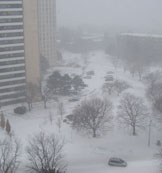 Whatever the future memories being brewed today may finally involve, they are also inevitably going to be different from mine, back more than half a century ago. Whatever else may or may not be true, the city was different then than it is now. The city in the middle of the 21st century will be different from what it is today. (Or so we think today.)
Whatever the future memories being brewed today may finally involve, they are also inevitably going to be different from mine, back more than half a century ago. Whatever else may or may not be true, the city was different then than it is now. The city in the middle of the 21st century will be different from what it is today. (Or so we think today.)
Along with the snow, I remember that in those days around this time of year a young person of even only moderate social ambition could attend a surprising number of Christmas parties, hosted by the various denominations of neighbourhood churches.
At school you met people of other denominations, and you would sometimes get invited to their Christmas parties, as you sometimes invited them to yours. None of the adults running these things turned away children they did not know, who were brought by children they did know. (It was good to get children onto church property, for whatever reasons. Just the raw physical proximity to religious buildings was thought to bring young people some benefit. And who knows? Maybe in some strange way it did?)
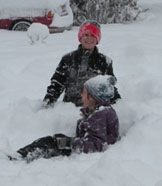 To pay for your presence at these Christmas parties, you did have to suffer through some appalling pageants on stage, before being let loose among the free pop and donuts or hot dogs or (not so good) milk and cookies, that formed the seriously popular part of the event.
To pay for your presence at these Christmas parties, you did have to suffer through some appalling pageants on stage, before being let loose among the free pop and donuts or hot dogs or (not so good) milk and cookies, that formed the seriously popular part of the event.
Some years your luck might prove very bad, and you might even be drafted into one of these pageants yourself. Once you’d seen one, you had certainly seen them all. There was always a Mary and a Joseph, and a doll lying in a manger (whatever that was). There were three or sometimes even more shepherds, watching their flocks by night. And there were three wise men, usually equipped with attractively gift-wrapped empty boxes, which they would give to the doll lying in the manger.
More exactly, the shepherds and wise men would come and visit the doll, to readings of bowdlerized biblical texts on the Christmas story, etc., etc. Some performances were clearly better than others. But who cared?
Hearing about Chanukah from your Jewish friends …
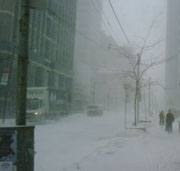 Even then, it was a holiday season and not just Christmas. There were certain lines you unfortunately did not cross, even if you sometimes came close. Among other denominations, e.g., the city neighbourhood I lived in then was quite Jewish. And I mean quite Jewish.
Even then, it was a holiday season and not just Christmas. There were certain lines you unfortunately did not cross, even if you sometimes came close. Among other denominations, e.g., the city neighbourhood I lived in then was quite Jewish. And I mean quite Jewish.
In my local tax-supported public or elementary school the classes I was in were often notably de-populated on Jewish holidays (the official presence of which themselves suggested the Jewish prominence in the neighbourhood). In some of my years there were so many pupils missing from class on Jewish holidays, that any really serious work was impossible. Too many people would miss it. And this inevitably made Jewish holidays almost or even at least as popular with non-Jewish as with Jewish students.
Yet I remember going to the birthday parties of Jewish friends. But I don’t remember going to any Chanukah parties at either of the two local synagogues. As best I know, there weren’t any Chanukah parties like that to go to. Being Jewish was a quite different scene. (Even if many who grew up in it have become no more religious than I am. You still seem to inherit a somewhat different approach to having no religion. But again who cares? We’re not all meant to wear exactly the same clothes either.)
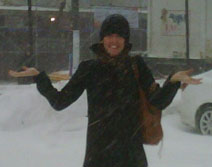 You couldn’t miss hearing about Chanukah from your Jewish friends. The thing that did seem attractive was that you didn’t just get presents once, on one allegedly magical night, but over several days. It was nonetheless made clear that on some days (the early ones I believe?) the presents were modest at best.
You couldn’t miss hearing about Chanukah from your Jewish friends. The thing that did seem attractive was that you didn’t just get presents once, on one allegedly magical night, but over several days. It was nonetheless made clear that on some days (the early ones I believe?) the presents were modest at best.
When I was not too much older I also knew people who were raised Jewish, and who were very keen to have Christmas trees when they left the traditional repressions of the family hearth. You can see the primitive appeal (and pre-Christian origins?) of the thing through these eyes – imagine a tree in the forest with decorations and lights?
(I regret that even this seems to elude me nowadays. And, beyond my age, that may have something to do with the artificial tree we have in the house now. It is certainly more convenient but inevitably less interesting than a real one.)
Peace on earth … and goodwill to all parties, etc, etc …
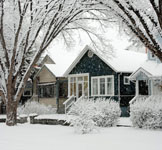 The idea about the year-end holiday season today that still seems to me connected to my own child’s christmas in this city, more than half a century ago, probably is the idea of parties. There is still a habit of having parties of one sort or another over the holiday season. And it seems to transcend at least many of the diversities in the city of our own time, in some kind of more or less constructive way.
The idea about the year-end holiday season today that still seems to me connected to my own child’s christmas in this city, more than half a century ago, probably is the idea of parties. There is still a habit of having parties of one sort or another over the holiday season. And it seems to transcend at least many of the diversities in the city of our own time, in some kind of more or less constructive way.
The greatest holiday season parties of my childhood were the ones my grandparents threw on Christmas Eve – followed by ones my grandparents’ close friends (whose son had married one of my aunts) threw on New Year’s Eve. These people had migrated to the city from other parts of the world in their early adulthood – in my grandparents’ case shortly after they were married, quite young. Like others in their circumstances, they acquired a large group of friends, who supported them in their new life somewhat as a family does (or is thought or ought to do) for those who choose to carry on with old lives. Their holiday season parties were crowded with people, full of merriment and confusion. They were also full of entertaining opportunities for children, with only intermittent and haphazard adult supervision, and plenty to eat and drink.
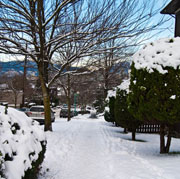 I know people who still go to parties like this today. But they seem to be mostly first-generation migrants as well, like my grandparents in an earlier era. If this place is where you started, on the other hand, you seem to go to a larger number of smaller, less boisterous gatherings. Or perhaps you have family members from other cities come and stay with you over the holidays, and so forth.
I know people who still go to parties like this today. But they seem to be mostly first-generation migrants as well, like my grandparents in an earlier era. If this place is where you started, on the other hand, you seem to go to a larger number of smaller, less boisterous gatherings. Or perhaps you have family members from other cities come and stay with you over the holidays, and so forth.
This too is interesting. But it isn’t quite the same. My parents’ generation tried to in some degree keep the holiday parties my grandparents’ generation started going. And then even my generation made some effort to honour the tradition after that. But the original migrants’ support group, so to speak, wasn’t really ours. And different parts of what became quite a few different families inevitably went in somewhat different directions, as the city grew and developed, and changed and changed again, over the half century that followed the Second World War.
Yet I am still going to parties of one sort or another over this holiday season. One virtue of being older is that you don’t have to participate in any kind of pageants ever again, if you don’t want to. (And many of us do not.) But what remains alive and vital, that at least many of the people from increasingly different parts of the world who are coming to this city nowadays do still seem to be picking up, is the traditional secular logic of the best year-end holiday season parties (or spirit, or mystique, or ethos, elan, or mojo, or call it whatever else you like).
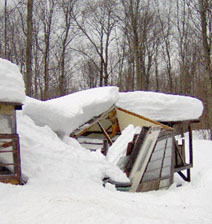 There are, I think, just two underlying principles you have to be willing to buy into, for at least a few days.
There are, I think, just two underlying principles you have to be willing to buy into, for at least a few days.
The first is that you are supposed to be relaxing and enjoying yourself – and all the other people you are getting together with, whether the serious number involved is very few or very large. And the second is that, for a short while in any case, we are all going to just forget about all our personal worries, and the sometimes rather excessively self-interested behaviour our kind of world sometimes seems to force upon us, in the name of raw survival.
We are instead going to at least pretend to honour peace on earth and goodwill towards all people, and all that. Whatever your religion or lack thereof, no doubt our world would be at least a somewhat better place if more of us took such principles more seriously for more of the year.
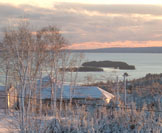 Meanwhile in the world as it is, it at least suggests something hopeful for the future that in this as in other cities we are still setting aside one part of the year when we pretend to be better than we really are. And as noted below, things have happily progressed still further from my childhood a half century ago: “This past December 9, 2008 was the Islamic holiday of Eid al-Adha (Festival of Sacrifice). The Jewish Chanukah 2008 is from “Sunset of December 21 through December 29.” Christmas is of course December 25, which falls on a Thursday this year. The official Boxing Day, in honour of the Secular God of Shopping, is on December 26. December 29, 2008 (as well as being the last day of Chanukah) is also Muharram (or the Islamic New Year). And December 31 is of course New Year’s Eve, with January 1 as New Year’s Day, according to the (Roman or Western) Christian calendar – which also serves as the calendar for the secular humanist mainstream (or whatever the more correct terms is) in virtually all of North America.”
Meanwhile in the world as it is, it at least suggests something hopeful for the future that in this as in other cities we are still setting aside one part of the year when we pretend to be better than we really are. And as noted below, things have happily progressed still further from my childhood a half century ago: “This past December 9, 2008 was the Islamic holiday of Eid al-Adha (Festival of Sacrifice). The Jewish Chanukah 2008 is from “Sunset of December 21 through December 29.” Christmas is of course December 25, which falls on a Thursday this year. The official Boxing Day, in honour of the Secular God of Shopping, is on December 26. December 29, 2008 (as well as being the last day of Chanukah) is also Muharram (or the Islamic New Year). And December 31 is of course New Year’s Eve, with January 1 as New Year’s Day, according to the (Roman or Western) Christian calendar – which also serves as the calendar for the secular humanist mainstream (or whatever the more correct terms is) in virtually all of North America.”
And for this quite incredible year of 2008, on so many different fronts, I’ll just add my own “Happy Holiday” – also the title of a song, composed by Irving Berlin, and “first performed by Bing Crosby in the 1942 film Holiday Inn.” The tune has subsequently been famously performed by many other artists, including an orchestra led by the late Percy Faith, who grew up in this city, and once played in a club at the foot of the street from which I am writing right now, before he went on to become more seriously famous, in a city much further west, and even further south.
Earlier report from counterweights editors, December 17: LAST GASPS OF 2008 SHOW HOW WILD IT’S BEEN .. no matter where you live or what you’ve seen?
 WEDNESDAY, DECEMBER 17, 2008. Starting with # 10 on this almost-year-end list, if you’re a Northern North American who plans on escaping the season by visiting Southern California, forget it: “Another storm hit Southern California this morning, dumping up to 6 inches of snow in parts of the Antelope Valley [just north of Los Angeles, and southeast of Bakersfield].”
WEDNESDAY, DECEMBER 17, 2008. Starting with # 10 on this almost-year-end list, if you’re a Northern North American who plans on escaping the season by visiting Southern California, forget it: “Another storm hit Southern California this morning, dumping up to 6 inches of snow in parts of the Antelope Valley [just north of Los Angeles, and southeast of Bakersfield].”
Read further below, if you dare. And you will at least learn a little more about: # 9. Our new soul searching over our parliamentary democratic political system in Canada; # 8. Political parties and hard times in the Canadian economy; # 7. Hard times in the American economy (and the Chinese economy?); # 6. In 2009 will Ontario get the number of seats in the federal Parliament it really deserves, at last?; # 5. Need a job – why not join the mob now applying for appointments to the unreformed Senate of Canada?; # 4. “How US controls Canadian isotope supply“; # 3. Exactly what are all the happy holidays being celebrated over the next 14 days (and beyond)?; # 2. Guess who Time magazine has crowned “Person of the Year” in the USA today?; # 1. If you don’t already know the name of the Russian ballerina who married John Maynard Keynes, who invented Keynesian economics in the middle of the last Great Depression, you will after you read this! (And maybe her intriguing story will help someone save a little more money in 2009?)
10. No need to just dream of White Christmas in Southern California this year? The big question of course is will it really last until December 25. But meanwhile: “The main roads from Los Angeles into the Antelope Valley were shut down by a powerful storm that dumped up to 6 inches of snow in the area … The windy, snowy conditions left some residents of Palmdale and Lancaster stranded and also was [were?] blamed for a helicopter crash in Santa Clarita … Snow has been reported as low as 2,400 feet in the Antelope Valley, said Bonnie Bartling, a specialist with the National Weather Service … The snow forced the closure of the Antelope Valley Freeway from 6.6 miles south of Palmdale at Soledad Canyon to Highway 138, the California Department of Transportation said. The Antelope Valley Transit Authority suspended all local bus service. Sierra Highway and portions of Highway 138 were also shut by snow.”
9. Has the great Canadian political crisis of late 2008 sparked some serious talk about actually fixing democracy in Canada at last … (well … probably not, but you never do know for absolute dead certain, do you, etc)? The anachronistically named Dominion Institute (maybe that’s part of the problem too?) has sponsored a survey which “in the aftermath of this month’s political crisis suggests a woeful ignorance when it comes to our system of government.”
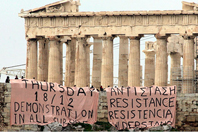 That of course won’t come as news to those with degrees in Canadian political science (like at least some among our editors here) who have been following the crisis. It may or may not be significant as well that most of the deep thinking about the implications of this woeful ignorance, and how to repair it, etc, is coming from Ottawa and points east – so far at least.
That of course won’t come as news to those with degrees in Canadian political science (like at least some among our editors here) who have been following the crisis. It may or may not be significant as well that most of the deep thinking about the implications of this woeful ignorance, and how to repair it, etc, is coming from Ottawa and points east – so far at least.
Ottawa journalist Lawrence Martin has asked “Are we still a colony?” (Though in the freebie metro news, not the prestigious Globe and Mail!) He starts out with: “It isn’t over yet. The Harper government’s unfathomable fumble – the fiscal update fiasco – has wreaked much havoc. But more is to come.” And then, a very short while later Mr. Martin ends by urging that, among many other things, Governor General Michaelle Jean “and her Monarchic ways are taking a hit. She may have made the right call on prorogation. But is she too regal to come forward and speak to her subjects about it … Her office shouldn’t be allowed to treat us like a bunch of patsies bowing at the feet of her closed-door proclamations.”
Then on the ancient seabound coats of Atlantic Canada we have Janice Harvey’s “Reflections on a national political awakening,” in the Telegraph-Journal from New Brunswick, and Dawn Heywood asking “Is Canadian democracy in crisis?” in the Halifax Chronicle-Herald. Only slightly west of the federal capital city, George Dillon in “An unprecedented situation,” in the venerable Kingston Whig-Standard, urges that “Political turmoil in Ottawa presents Canadians with a challenge .” And then, much further back east indeed, in something that may not be altogether unrelated (but only vaguely, of course, of course) the New York Times is reporting that “Greek Protesters Unfurl Banners at Acropolis” – in Athens, where democracy first began …
8. Can anyone in Ottawa really fix the Canadian economy … or even just help protect at least some Canadians from whatever economic storms are looming ahead? To start with, Bloc Quebecois leader Gilles Duceppe (undeservedly reviled in some Canadian quarters lately) has visited the central anglophone metropolis of Toronto. And: “A proposed Liberal-NDP coalition is still the best solution to the economic crisis, Gilles Duceppe said … Yet … he declined to predict whether the idea of a coalition would survive until the end of January when the Conservative government has promised to release its budget.” Nonetheless: “I’m a Yogi Berra fan,’ Duceppe said, addressing the media at the Hotel Sutton Place near Bay and Wellesley Sts.” (And remember what Yogi apocryphally said, about how “it ain’t over till it’s over.” Presumably that’s what M. Duceppe means too, in English as well as French)
 At the same time: “Duceppe also stressed that while he will back the Liberals and NDP, the Bloc will not be part’ of the coalition.” (That would be a bit too unseemly for Quebec sovereigntists – and many in Ontario and Western Canada as well, apparently?) Meanwhile: “The federal budget should reflect the Liberal-NDP coalition’s demands but it’ll be a miracle if that happens, says New Democrat Leader Jack Layton … A major stimulus package including affordable housing and a child-care program, assistance for seniors and investment in infrastructure is needed, Layton said after addressing the United Steelworkers at their annual Christmas luncheon in Toronto … But Layton added he wasn’t optimistic Prime Minister Stephen Harper could deliver a budget that’ll win the confidence of the opposition parties, which threatened to bring down the government earlier this month.”
At the same time: “Duceppe also stressed that while he will back the Liberals and NDP, the Bloc will not be part’ of the coalition.” (That would be a bit too unseemly for Quebec sovereigntists – and many in Ontario and Western Canada as well, apparently?) Meanwhile: “The federal budget should reflect the Liberal-NDP coalition’s demands but it’ll be a miracle if that happens, says New Democrat Leader Jack Layton … A major stimulus package including affordable housing and a child-care program, assistance for seniors and investment in infrastructure is needed, Layton said after addressing the United Steelworkers at their annual Christmas luncheon in Toronto … But Layton added he wasn’t optimistic Prime Minister Stephen Harper could deliver a budget that’ll win the confidence of the opposition parties, which threatened to bring down the government earlier this month.”
So where are the Liberals on all these things? Certainly Mr. Harper and Mr. Flaherty and other Conservatives are trying to convince the Liberals to abandon their NDP and BQ allies (“the socialists and separatists” as the neo-hysterical rhetoric has it) – as, apparently and for the moment, as much as 45% of the Canada-wide electorate wants as well. But the essential Grit position would still seem to be new Liberal leader Michael Ignatieff’s creative borrowing from the near-great Canadian Liberal prime minister of the 1920s, 1930s, and 1940s, William Lyon Mackenzie King (also grandson of the leader of the Upper Canadian Rebellion of 1837, William Lyon Mackenzie): “The coalition if necessary, but not necessarily the coalition.”
Beyond such political (and economic) crypticism, there are further hints in the following newspaper articles, from coast to coast to coast (more or less): “Stormy economic days ahead: Flaherty” ; “Flaherty says infrastructure projects must happen quickly to boost economy” ; “Finance ministers meet to fix economy” ; “PM’s pessimistic talk makes bad situation worse, critics say” ; “Canadian cities in rapid decline: CIBC” [and note, rather surprisingly: “The loss of momentum was most pronounced in Western Canada. … Edmonton and Calgary, which topped the economic activity rankings last year, ranked behind Regina, Toronto, Saskatoon and Vancouver this year”] ; “Liberals want details from Flaherty” ; “Flaherty seeks Liberal input on budget.” (And finally for how some Britis view the former British TV host and current Canadian Liberal leader, see “How they see him,” from the Toronto Globe and Mail.)
7. Hard times in the American economy (and the Chinese economy?) Don Drummond of the TD Bank was on TV today, saying Canada was so plugged in to the wider US and international economies that mere policies and programs to stimulate growth in Canada alone could not really revive whatever declines in Canadian economic fortunes lie ahead. Or, until the wider scene improves, Canada can’t actually do all that much to help itself.
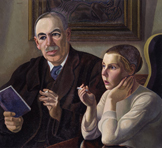 However sensible this point of view may or may not be, it is certainly true that the adjacent and much vaster US economy is headed for big enough trouble. See, e.g., the report in today’s Washington Post: “New Poll Shows 63% Are Already Hurt by Downturn.” Similarly, if Thomas Friedman is not always altogether convincing, his column in yesterday’s New York Times, “The Great Unraveling” (dateline Hong Kong), certainly had its provocative moments: … “I have no sympathy for [Wall Street shyster Bernard] Madoff. But the fact is, his alleged Ponzi scheme was only slightly more outrageous than the legal’ scheme that Wall Street was running, fueled by cheap credit, low standards and high greed. What do you call giving a worker who makes only $14,000 a year a nothing-down and nothing-to-pay-for-two-years mortgage to buy a $750,000 home, and then bundling that mortgage with 100 others into bonds – which Moody’s or Standard & Poors rate AAA – and then selling them to banks and pension funds the world over? That is what our financial industry was doing. If that isn’t a pyramid scheme, what is? … in the wake of our massive bank bailout, one can now look at China and America and say: “Well, China has a big-state-owned banking sector, next to a private one, and America now has a big state-owned banking sector next to a private one. China has big state-owned industries, alongside private ones, and once Washington bails out Detroit, America will have a big state-owned industry next to private ones” … Yes, an exaggeration to be sure, but the truth is the differences are starting to blur … It’s depressing because China in many ways feels more stable than America today, with a clearer strategy for working through this crisis.”
However sensible this point of view may or may not be, it is certainly true that the adjacent and much vaster US economy is headed for big enough trouble. See, e.g., the report in today’s Washington Post: “New Poll Shows 63% Are Already Hurt by Downturn.” Similarly, if Thomas Friedman is not always altogether convincing, his column in yesterday’s New York Times, “The Great Unraveling” (dateline Hong Kong), certainly had its provocative moments: … “I have no sympathy for [Wall Street shyster Bernard] Madoff. But the fact is, his alleged Ponzi scheme was only slightly more outrageous than the legal’ scheme that Wall Street was running, fueled by cheap credit, low standards and high greed. What do you call giving a worker who makes only $14,000 a year a nothing-down and nothing-to-pay-for-two-years mortgage to buy a $750,000 home, and then bundling that mortgage with 100 others into bonds – which Moody’s or Standard & Poors rate AAA – and then selling them to banks and pension funds the world over? That is what our financial industry was doing. If that isn’t a pyramid scheme, what is? … in the wake of our massive bank bailout, one can now look at China and America and say: “Well, China has a big-state-owned banking sector, next to a private one, and America now has a big state-owned banking sector next to a private one. China has big state-owned industries, alongside private ones, and once Washington bails out Detroit, America will have a big state-owned industry next to private ones” … Yes, an exaggeration to be sure, but the truth is the differences are starting to blur … It’s depressing because China in many ways feels more stable than America today, with a clearer strategy for working through this crisis.”
6. Ontario to get the number of seats in the federal Parliament it really deserves, at last? According to the Canadian Press: “A lengthy and often bitter fight between Ontario and the federal government was quietly resolved last week when Prime Minister Stephen Harper agreed to give the province 21 additional seats in the House of Commons, Premier Dalton McGuinty said … That’s 11 more new Commons seats than the Conservatives initially said Ontario would get under a redistribution plan announced last year to reflect growing populations in Ontario, Alberta and British Columbia.”
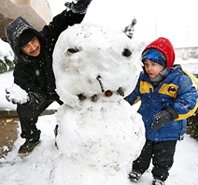 The deciding moment here, it seems more than fair to guess, was on October 14, 2008, when Mr. Harper’s Conservatives won 51 of Ontario’s 106 seats in the Canadian House of Commons, more than either the Liberals (38) or the New Democrats (17). However you exactly read the significance of the 51 seats (and it’s a fair point that some of the new seats Ontario is likely to get are also likely to go Liberal in future elections), it wasn’t in fact the eloquence of Premier McGuinty that finally convinced Prime Minister Harper. It was the votes of the people of Ontario.
The deciding moment here, it seems more than fair to guess, was on October 14, 2008, when Mr. Harper’s Conservatives won 51 of Ontario’s 106 seats in the Canadian House of Commons, more than either the Liberals (38) or the New Democrats (17). However you exactly read the significance of the 51 seats (and it’s a fair point that some of the new seats Ontario is likely to get are also likely to go Liberal in future elections), it wasn’t in fact the eloquence of Premier McGuinty that finally convinced Prime Minister Harper. It was the votes of the people of Ontario.
(Like anything else in the 40th Parliament, of course, these plans of Mr. Harper’s minority government will also finally need the support of one or the other of the three opposition parties, to see the light of day. Note, however the point about Liberals above.)
DECEMBER 19 UPDATE: It has most recently been said as well that the deal Mr. Harper and Mr. McGuinty have reached is for something somewhat less than 21 new seats, which is what Ontario’s current demographic weight would require, on any strictly interpreted representation by population.
5. “Hundreds of would-be senators flooding Tories with job requests.” Whatever some critics may think of Prime Minister Harper’s current plans to suddenly fill 18 vacant seats in the unreformed Senate of Canada by patronage appointments (despite his allegedly still active long-term ambitions for Senate elections), there are proving surprisingly popular in other quarters.
As the Canadian Press tells this version of the ongoing Ottawa soap opera: “The Conservative government is being inundated by hundreds of applicants longing to land one of the 18 Senate spots about to be filled by Prime Minister Stephen Harper … The candidates are springing forward at such a sprightly pace that officials in Harper’s office say they’re too busy processing papers to even count how many applications they’ve received … Harper says he never wanted to stack the Senate with patronage appointments and that he still looks forward to the day he can turn the chamber into an elected body.” (Mmmm … well yes of course. Mr. Harper never lies … or well, he did lie about the Canadian flags behind the coalition press conference a few weeks ago now, as the TV cameras and so forth later made clear. But … well …. etc, etc.)
4. “How U.S. controls Canadian isotope supply.” Remember all the sudden fuss about medical isotopes produced at the Chalk River nuclear reactor in Ontario under the first Harper Conservative minority government? The place is back in the news again. And one Ontario doctor is saying “the Canadian population is being left holding the bag?”
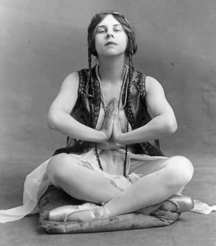 As explained by Gloria Galloway in the Globe and Mail: “The US distributors of medical isotopes produced at an Ontario reactor cut supplies to all of their customers – including those in Canada – after the unit was shut down for an extended period last week … Canadian nuclear medicine experts and their patients had to reschedule appointments and turn to less effective procedures even though, in the face of the shutdown, the Chalk River reactor produced more than six times the amount of molybdenum isotope needed to meet the Canadian demand.
As explained by Gloria Galloway in the Globe and Mail: “The US distributors of medical isotopes produced at an Ontario reactor cut supplies to all of their customers – including those in Canada – after the unit was shut down for an extended period last week … Canadian nuclear medicine experts and their patients had to reschedule appointments and turn to less effective procedures even though, in the face of the shutdown, the Chalk River reactor produced more than six times the amount of molybdenum isotope needed to meet the Canadian demand.
“I have instructed my officials to work with their counterparts at Health Canada to open a dialogue with isotope distributors so that the impact on Canadians is minimized during times of uncertainty in global isotope supply,’ Natural Resources Minister Lisa Raitt said in a statement … ‘While the reactor at Chalk River produces isotopes, it is private-sector processors and distributors that ultimately direct the flow of isotopes to the global medical community’.” And as Ms. Galloway goes on to explain: “One hundred per cent of the isotopes produced at Chalk River are sent to US companies … for distribution.”
Minister Raitt does seem to be dissembling here somewhat. Knee-jerk economic nationalism is ridiculous in the present day and age. But is it altogether crazy to imagine that Canadians would at least have first claim on crucial medical resources produced in Canada by Canadians, in a facility developed to no small extent by the hard-earned dollars of Canadian taxpayers?
3. Just what are the happy holidays nowadays anyway? This does seem a question worth asking, especially in such places as the Greater Toronto Area, where our premises reside – regardless of your individual position on the War Against Christmas (which Keith Olbermann says has now ended, in any event?)
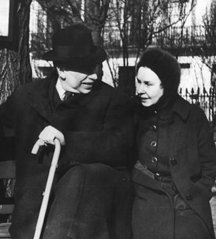 So … This past December 9, 2008 was the Islamic holiday of Eid al-Adha (Festival of Sacrifice). The Jewish Chanukah 2008 is from “Sunset of December 21 through December 29.” Christmas is of course December 25, which falls on a Thursday this year. The official Boxing Day, in honour of the Secular God of Shopping, is of course on December 26. December 29, 2008 (as well as being the last day of Chanukah) is also Muharram (or the Islamic New Year). And December 31 is of course New Year’s Eve, with January 1 as New Year’s Day, according to the (Roman or Western) Christian calendar – which also serves as the calendar for the secular humanist mainstream (or whatever the more correct terms is) in virtually all of North America. Our deepest apologies if we have left anything or anyone out. And, needless to say, Happy Holidays, Season’s Greetings, and If You Drink Don’t Drive, etc, etc.
So … This past December 9, 2008 was the Islamic holiday of Eid al-Adha (Festival of Sacrifice). The Jewish Chanukah 2008 is from “Sunset of December 21 through December 29.” Christmas is of course December 25, which falls on a Thursday this year. The official Boxing Day, in honour of the Secular God of Shopping, is of course on December 26. December 29, 2008 (as well as being the last day of Chanukah) is also Muharram (or the Islamic New Year). And December 31 is of course New Year’s Eve, with January 1 as New Year’s Day, according to the (Roman or Western) Christian calendar – which also serves as the calendar for the secular humanist mainstream (or whatever the more correct terms is) in virtually all of North America. Our deepest apologies if we have left anything or anyone out. And, needless to say, Happy Holidays, Season’s Greetings, and If You Drink Don’t Drive, etc, etc.
2. Who is Time magazine’s Person of the Year for 2008? If you guessed Barack Obama, of course you’re right. And if you didn’t, what planet are you living on anyway?
1. The Russian ballerina who married John Maynard Keynes. With something that may or may not bear some vague resemblance to the Great Depression of the 1930s maybe looming in the wings of at least Western history (sort of?), the great English liberal economist of the 1920s, 1930s, and 1940s, John Maynard Keynes, has become at least half-respectable again.
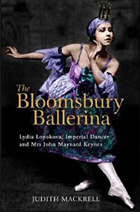 It is similarly appropriate that the 18 December 2008 issue of the London Review of Books includes a piece entitled “Lady Talky” by Alison Light (who was “recently made a professor of modern English literature and culture at Newcastle University”). More exactly the piece is a quite interesting review of the comparatively recently published book, Bloomsbury Ballerina: Lydia Lopokova, Imperial Dancer and Mrs John Maynard Keynes, by Judith Mackrell.
It is similarly appropriate that the 18 December 2008 issue of the London Review of Books includes a piece entitled “Lady Talky” by Alison Light (who was “recently made a professor of modern English literature and culture at Newcastle University”). More exactly the piece is a quite interesting review of the comparatively recently published book, Bloomsbury Ballerina: Lydia Lopokova, Imperial Dancer and Mrs John Maynard Keynes, by Judith Mackrell.
Those among the counterweights editors who have actually sampled a fair amount of writing by and about the insufferably intelligent and very financially clever (and successful) John Maynard Keynes, but have never known much about his wife, the Russian ballerina Lydia Lopokova, tell us that Alison Light’s review of Judith Mackrell’s book is both enlightening and entertaining – and, as such things go, takes very little time to read, from start to finish.
Ms. Lopokova, who was “pretty, with a natural sense of drama and rhythm, and blessed with remarkable leg muscles,” had already become quite famous, in both the United Kingdom and the United States, before she met Keynes. He “had been an avowed homosexual since the age of 16,” but finally asked the famous ballerina to marry him in his late 30s, and she agreed – partly because “clearly one of Keynes’s attractions was his capacity to become her protector and manage her finances without turning into a Svengali.” The marriage seems to have been a great success, despite the disapproval of Keynes’s high-brow friends among the so-called Bloomsbury group (Virginia Woolf et al.) – and his unfortunate early death at the age of 63, just after the end of the Second World War. Ms. Lopokova lived on until the middle of 1981, and finally told a Bloomsbury granddaughter, who stumbled across her in later years: “To have wrinkles is to be noble … We all of us grow old, what matters is how you age.”

